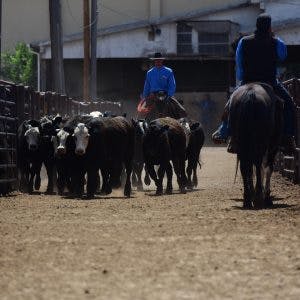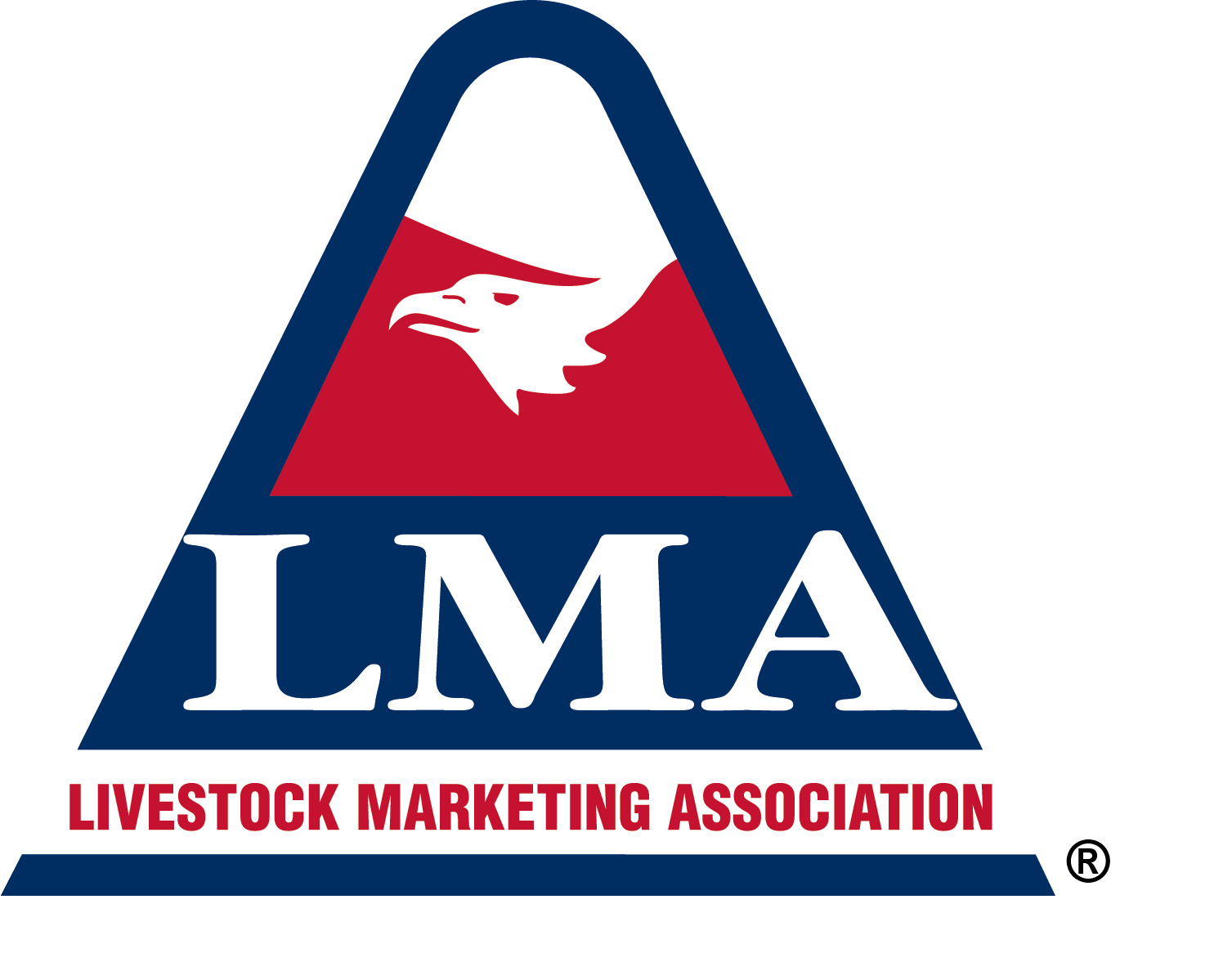PRESS RELEASE
Dealer Trust Would Prioritize the Producer
March 7, 2018
CONTACT
Lindsay Graber Runft
lrunft@lmaweb.com
Dealer Trust Would Prioritize the Producer

What if after all the time and money invested, your work as a producer resulted in a bad check for your calves? No paycheck on what should have been your annual payday.
Who would you call first? The buyer? Their bank? Your bank? How would you break the news to your family and business partners?
Sounds painful, right? In the event of a dealer payment default, livestock producers sell to a livestock dealer and then are left “high and dry,” wondering how to recover.
CURRENT LAW – A BAD DEAL FOR PRODUCERS
If you raise cattle long enough, stories of bad payment —or no payment at all— will become old hat. The “check is in the mail” statement has become an eye-roll inducing, all-too-common excuse. Often, ranchers learn of a buyer’s frozen or empty bank account only after cattle they’ve sold have been shipped down the road. The rancher is left without payment for their cattle, often with no recourse to go after the stock they spent months and thousands of dollars to raise.
The most devastating example of a dealer default is still fresh on many minds. Ranchers who sold to Eastern Livestock (Eastern) experienced the panic of a bad check, or no check, when Eastern was forced into bankruptcy in 2010. After the smoke cleared, the entity owed approximately $112 million to creditors, including hundreds of livestock producers, other dealers, and auction markets. At the time, Eastern seemed like a sure bet—too big to fail—as the largest cattle dealer in the United States.
Many producers avoided suffering a loss after the Eastern default because they sold their livestock at a local livestock auction market. Thankfully for those producers, the auction markets paid them for their consignments through the markets’ federally required custodial accounts. Unfortunately for the markets however, instead of making a small commission for their selling services as would normally be the case, these markets ended up like the ranchers who sold to Eastern directly: unpaid for the full price of the cattle sold with nowhere to turn.
Notions of fair play and justice might make one think these sellers could simply reclaim the livestock for which they were never paid.
Unfortunately, under today’s law, this is typically not the case. A buyer’s bank will typically have priority over the unpaid seller with a blanket security interest that includes livestock their customer might later acquire. That’s right, even if their customer hasn’t paid for the livestock, the buyer’s bank will get paid while the rancher who raised, fed, and cared for the livestock, or the market that sold the livestock on their behalf, is left hanging.
That is patently unfair.
The default issue is especially challenging when the buyer is a livestock dealer, due to the high volumes purchased and quick turnaround for resale. Dealers are in the business of buying and reselling livestock, often grouping them to meet volume and type needs of their customers. Existing prompt payment rules allow dealers to take possession of livestock and pay for them later by placing a check in the mail the next day. With a slowing mail system, it often takes several days before the rancher or auction market receives the dealer’s check or finds out that a check is not coming. Unlike markets, dealers are not required to maintain a custodial or trust account to guarantee payment.
Dealer bonds under the Packers and Stockyards (P&S) Act are designed to protect against buyer payment default. However, dealer bond payments average less than 15 cents on the dollar.
While Eastern is the best-known example of livestock dealer default, the problem is not rare. There have been dozens of additional defaults of various sizes since the Eastern default.
In the fall of 2015, a bonded livestock dealer, longtime customer, and personal friend purchased $2.9 million worth of cattle from Ogallala Livestock Market in a week’s timeframe. Checks sent to pay for the cattle came back to the market as not sufficient funds (NSF). When the checks were run again, the bank account was closed.
“You think, ‘Wow, is this a nightmare I’m having? No, it’s reality,’” lamented Dwayne Mays, co-owner of Ogallala Livestock Market.
The devastation did not stop in Ogallala. During the time period of the purchases from Ogallala Livestock Market, the same dealer bought $980,000 at Rezac Livestock Commission in Saint Marys, Kansas, and also purchased from producers in the country.
Unpaid sellers filed on the dealer’s GIPSA bond and received less than 5 cents on the dollar. For Ogallala, this meant receiving just $140,000 on $2.9 million owed. Simply put, dealer bonds are not enough in times of dealer payment default.
ADDING INSULT TO INJURY – PREFERENTIAL TRANSFER IN BANKRUPTCY
A big default is scary, but a preferential transfer claim can be ruinous. In some cases, nonpayment for livestock is followed by a dealer’s bankruptcy trustee demanding money that has already been deposited in the seller’s bank from 90-days’ worth of livestock sales. This money can be pulled into the bankruptcy action for distribution to other creditors.
THE SOLUTION – PUTTING UNPAID SELLERS FIRST
Thankfully, better protection for sellers of livestock in the event of a livestock dealer payment default is in the works. Congressman Roger Marshall (R-KS) has introduced the Securing All Livestock Equitably (SALE) Act, H.R. 4058, which would amend the Packers and Stockyards Act to create a Dealer Statutory Trust. A dealer trust would give unpaid sellers of livestock first priority in livestock, or if the livestock have been resold, the proceeds/receivables from livestock in the event of a dealer default. Instead of the banks being first in line for these assets, it would be ranchers and other sellers. A dealer trust would be patterned after the existing Packer Statutory Trust, which Congress created to address similar issues with packer defaults in the 1970s.
Also, in the event a dealer trust is created, producers would also have protection against preferential transfer claims. Dealer trust assets would not be part of the bankrupt dealer’s estate and would not be subject to preferential transfer rules. This would give ranchers and markets, as well as their lenders, the peace of mind to know money already in the bank will not be pulled out of the account after the fact.
“The Dealer Statutory Trust is the most commonsense legislation I’ve come across in a long time,” said Joe Goggins, owner of Public Auction Yards, Billings Livestock and Northern Livestock Video Auction. “It’s only fair and right that the unpaid sellers of livestock have priority over the lenders, and their customers that did not pay for the livestock. It’s also only fair and right that a person who has been paid in good faith during the 90 days prior to a dealers filing bankruptcy should not be forced to pay that money to the bankruptcy trustee.”
A dealer trust would be simple and efficient. If a livestock dealer pays for livestock, the dealer trust would not change current business practices or lender standing. No separate account is needed. The trust would only make a difference if a dealer defaults and would only affect enough livestock and receivables/proceeds from livestock to make unpaid cash sellers of livestock whole. Lenders would retain their priority in other assets (e.g. trucks, property, equipment, etc.).
“Had this law been in place earlier, it would have saved our organization and family a lot of hardship and money over the years. I know from first-hand experience as an unpaid seller and market owner who guarantees our sellers a good check, that when you go through a bankruptcy situation under the current laws, and without the protection of a dealer trust, it makes you actually wonder if we live in America,” commented Goggins.
At the end of the day, there is no question as to who should be in the front of the line when it comes to payment for a livestock deal. It’s time to put ranchers, and the markets who serve them, first.

About the Livestock Marketing Association
The Livestock Marketing Association (LMA), headquartered in Overland Park, Kan., is North America’s leading, national trade association dedicated to serving its members in the open and competitive auction method of marketing livestock. Founded in 1947, LMA has more than 800 member businesses across the U.S. and Canada and remains invested in both the livestock and livestock marketing industries through member support, education programs, policy representation and communication efforts.
RELATED PRESS RELEASES
